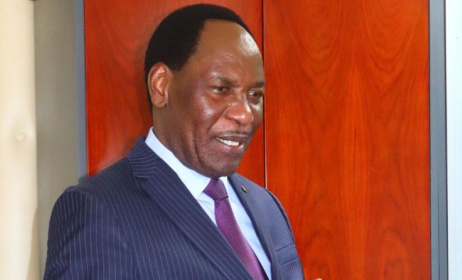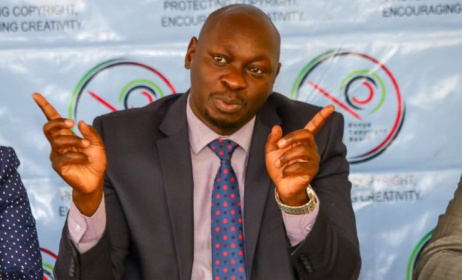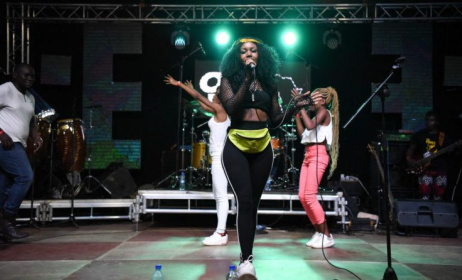Nairobi fest to fuse live jazz and hip hop
Dandora HipHop City (DHC) – an arts, technology and entrepreneurship space that brings together rappers in the Dandora slum in Nairobi – will host the third edition of HipHop Jazz Street Festival on 27 April.
 Rapper and Dandora Hiphop City founder Juliani.
Rapper and Dandora Hiphop City founder Juliani.
The event will take place at the Kenya National Theatre and is intended to mark International Jazz Day. Event sponsors include UNESCO, Voices 4 Change and the Safer Cities Nairobi Initiative.
“HipHop Jazz Street Festival will showcase an infusion of hip hop, old school and new, to the harmonies of jazz instrumentals,” the organisers said. “This fun-filled day is to provide the perfect platform for local artists, family and friends to mingle and sample some of the products, including artworks, music, fashion and foodstuffs, among others.”
This year’s line-up will feature Sigingi Burguda, Abudhabi Tembekali, Ramsizo Burguda, Dash Jonte, Madigolo, Teto Ole Tutuma, the Ghetto Classics, Abakisimba Troupe and Vidar Vasko.
Speaking to Music In Africa, festival organiser Charles Lukania said the annual event would highlight original, collaborative and spontaneous work.
“We are changing how hip hop music is made to match the current trend of live music performance,” he said. “We want our artists to move away from performing with playback. For the past two years, we have been challenged to also train the artists on playing at least one instrument of their choice. This training will commence once we get the necessary funding.”
Lukani said the performing artists were in the process of recording three songs that would be performed at the festival. He said Dandora HipHop City was also looking at partnering with a record label to release a compilation album every year.
“We are guided by Kenya’s all-time best hip hop group Ukoo Flani, which also came up from the slum,” he said. “Our focus is to keep making socially conscious music just like them as opposed to the current popular hip hop in Kenya that is heavily rooted in the American culture.
"We encourage our artists to be cautious of their surroundings, highlight what is happening in their community and go beyond the current funkiness in hip hop that’s being fronted by the mainstream media.”
Asked about the biggest challenges in organising the festival, Lukani said: “The biggest challenge has been funding. We would like to see the artists earn better from their performance because they work hard.
"We have also struggled to work with female rappers and this is a challenge. Some have children or can’t manage with our timings, but we will not give up until we achieve gender parity at our festival.”



































Comments
Log in or register to post comments